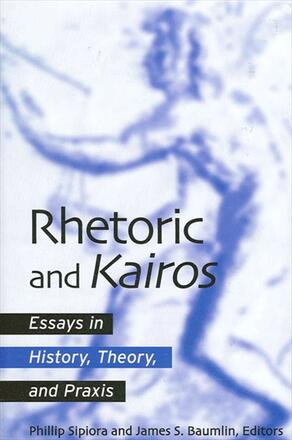
Rhetoric and Kairos
Essays in History, Theory, and Praxis
Alternative formats available from:
The first comprehensive discussion of the history, theory, and practice of kairos: that is of the role “timeliness” or “right-timing” plays in human deliberation, speech, and action.
Description
This collection offers the first comprehensive discussion of the history, theory, and pedagogical applications of kairos, a seminal and recently revised concept of classical rhetoric. Augusto Rostagni, James L. Kinneavy, Richard Leo Enos, John Poulakos, and John E. Smith are among the international list of scholars who explore the Homeric and literary origins of kairos, the technologies of time-keeping in antiquity, the role of "right-timing" in Hippocratic medicine, the improvisations of Gorgias, as well as the uses of kairos in Isocrates, Plato, Aristotle, Cicero, and the New Testament. Broad in its scope, the book also examines the distinctive philosophies of time reflected in Renaissance Humanism, Nineteenth-Century American Transcendentalism, Oriental art and ritual, and the application of kairos to contemporary philosophy, ethics, literary criticism, rhetorical theory, and composition pedagogy.
Phillip Sipiora is Professor and Associate Chair of English at The University of South Florida. He is the coeditor, with Fredric G. Gale and James L. Kinneavy, of Ethical Issues in College Writing. James S. Baumlin is Professor of English at Southwest Missouri State University. He is the author of John Donne and the Rhetorics of Renaissance Discourse and coeditor, with Tita F. Baumlin, of Ethos: New Essays in Rhetorical and Critical Theory.
Reviews
"What is most commendable about this book is the broadness of its scope, embracing in some fashion or another all the disciplines of the humanities, its essays covering topics as diverse as biblical references to kairos to the place of kairos in medicine and writing in the sciences. Worthy of special note is the effort to apply the idea of kairos to the practical aspects of writing in the composition classroom. " — Bernard A. Miller, Eastern Michigan University